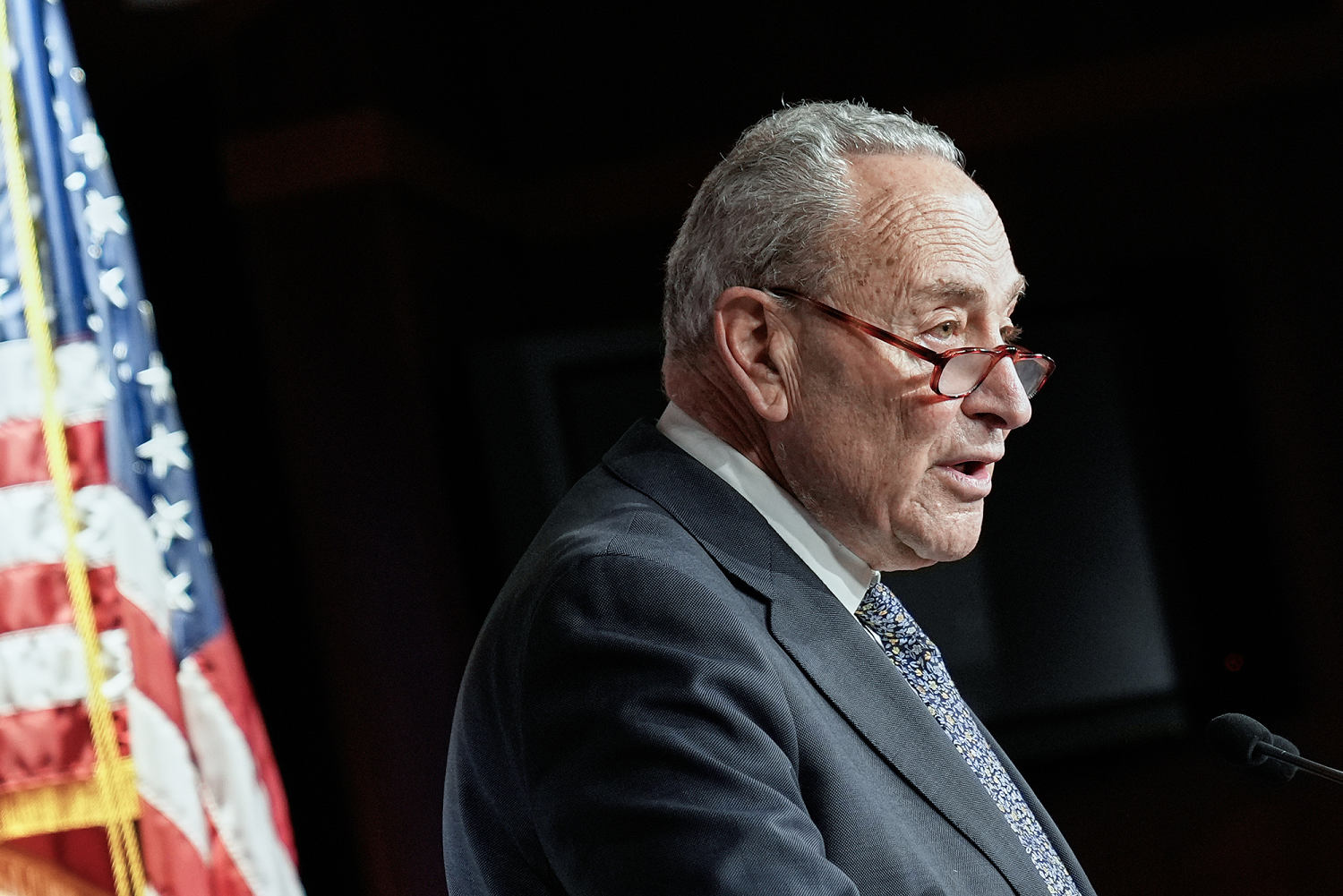
WASHINGTON — President Donald Trump’s push for Republicans to bypass Democrats and claw back $9.4 billion in approved spending has ignited a new fight in Congress that could upend the normally bipartisan government funding process.
Ahead of a Sept. 30 deadline to prevent a shutdown, Senate Minority Leader Chuck Schumer, D-N.Y., is laying down a marker by warning that Democrats won’t sign off on an agreement if the GOP follows through with Trump’s request.
“If Republicans cave to Donald Trump and gut these investments agreed to by both parties, that would be an affront — a huge affront — to the bipartisan appropriations process,” Schumer said. “It is absurd to expect Democrats to play along with funding the government if Republicans are just going to renege on a bipartisan agreement by concocting rescissions packages behind closed doors that can pass with only their votes, not the customary 60 votes required in the appropriation process.”
Schumer’s warning represents a bold gambit that heightens tensions ahead of another government funding showdown — just months after a group of Senate Democrats backed down from a previous showdown and drew heavy backlash from their base.
The dynamics are the product of a quirk in Senate rules. Funding the government is subject to the filibuster, requiring 60 votes, but a separate —and rarely used — process allows for canceling some approved spending with a simple majority vote.
The rescissions package would slash $8.3 billion in foreign aid and $1.1 billion from the Corporation for Public Broadcasting, which funds PBS and NPR. It flows from efforts by the Department of Government Efficiency, or DOGE, to find savings.
It passed by House last month by a vote of 214-212. It’s unclear whether the Senate, where Republicans control 53 seats, has enough votes to pass it. Some GOP senators want to make changes, which would send it back to the House.
Democrats staunchly oppose the rescissions package, which was crafted without their input. Republicans can pass the $9.4 billion in cuts on party lines, but if that leads Democrats to refuse to sign off on a new government funding deal, it could trigger a shutdown at the end of September.
Senate Majority Leader John Thune, R-S.D., said Wednesday that he will bring up the rescission package “next week” and that it will be subject to an open amendment process.
Thune said he was “disappointed” to see Schumer “implicitly threaten to shut down the government.”
“But I’m hopeful that that is not the position of the Democrat Party, the Democrat conference here in the Senate, and that we can work together in the coming weeks to pass bipartisan appropriations bills,” he said.
Congress has a deadline of July 18 to send the rescissions package to Trump’s desk or let it dissolve.
Even some Republicans worry that canceling spending on party lines would harm the traditional appropriations process.
“And the reason for that is because, if you do appropriations in the Senate, you have 60 votes to support it. If you do rescissions, you can take it back with 50, which then makes it tougher to get a bipartisan agreement on an appropriations package,” Sen. Mike Rounds, R-S.D., who is on the Appropriations Committee, told NBC News. “We are aware of the sensitivities of using a rescissions package versus the appropriations process.”
Beyond that, Rounds said, the measure must be revised to protect rural broadcast stations that could lose critical funding.
“We have to have a fix, for sure, on those rural radio stations. Basically 90% or more of their resources are taken away by the rescissions package,” he said. The Office of Management and Budget “has agreed to work with us, and now we’re in that process of finding the appropriate path forward where they do not lose their funding.”
And Sen. Susan Collins, R-Maine, the Appropriations Committee chair, said she opposes some parts of the measure.
“For my part, I believe it needs some significant changes,” Collins said, citing the President’s Emergency Plan for AIDS Relief (PEPFAR) as a program she “can’t imagine why we would want to” cut funding from.
Sen. Thom Tillis, R-N.C., said that he’s inclined to support the measure but that he’s reviewing parts of it, including PEPFAR.
“I’m fine with the majority of it,” Tillis said. “We’re just looking at any of the national security impacts, any nexus there that would raise concern.”
Schumer’s threat to block an appropriations deal would require at least 41 of the 47 Democrats to rally against it, a level of unity they failed to achieve in March during a contentious spat over a looming government shutdown.
Sen. Tammy Baldwin, D-Wis., an Appropriations Committee member, said that if Trump and the Republican majority “can undermine the appropriations process by rescinding bipartisan funding on a simple majority vote, that presents real challenges to the appropriations process.”
“Moving forward, it’s our job in the next few days to make sure that Republicans know that this would be a major trust factor in moving forward with our appropriation bills,” she said.
Bobby Kogan, a former Senate Democratic budget aide who is now at the liberal Center for American Progress, said the GOP effort could break the appropriations process as it’s currently known.
It doesn’t help, he added, that Trump and his party already modified part of government funding with a major increase in spending for the military and immigration enforcement under the party-line megabill Trump signed into law last week.
“This all risks a lot more shutdowns. Republicans are looking at breaking appropriations deals on both sides of the ledger: spending more on the things they like and less on the things they don’t like,” Kogan said. “If you can break bipartisan appropriations deals with partisan rescissions packages, that is going to be the end of bipartisan appropriations.”